Keep up with the Latest
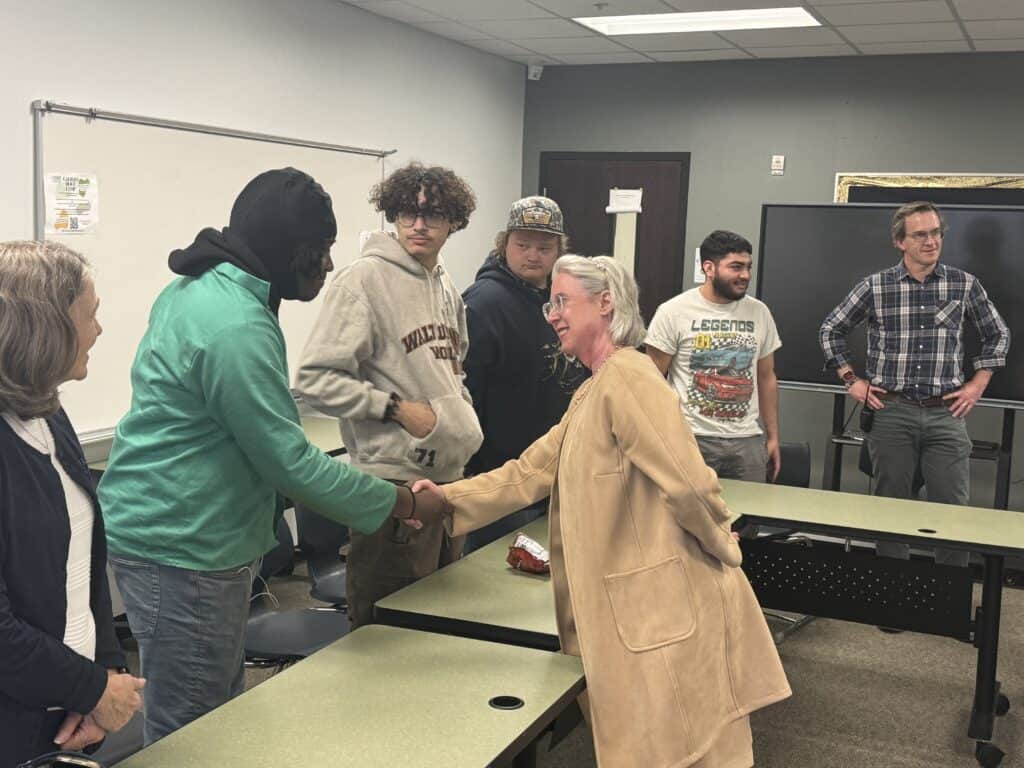
Welding a Bright Future: HireSmart Founders Offer Job Tips for Local Trade Students
When Mark and Anne Lackey, Co-founders of HireSmart Cares, recently visited the welding program at Foothills Regional High School in Barrow County, Georgia, they brought more than just business experience — they brought practical wisdom for students preparing to enter the workforce with their new welding certifications. Mark shared his personal journey of struggling in…
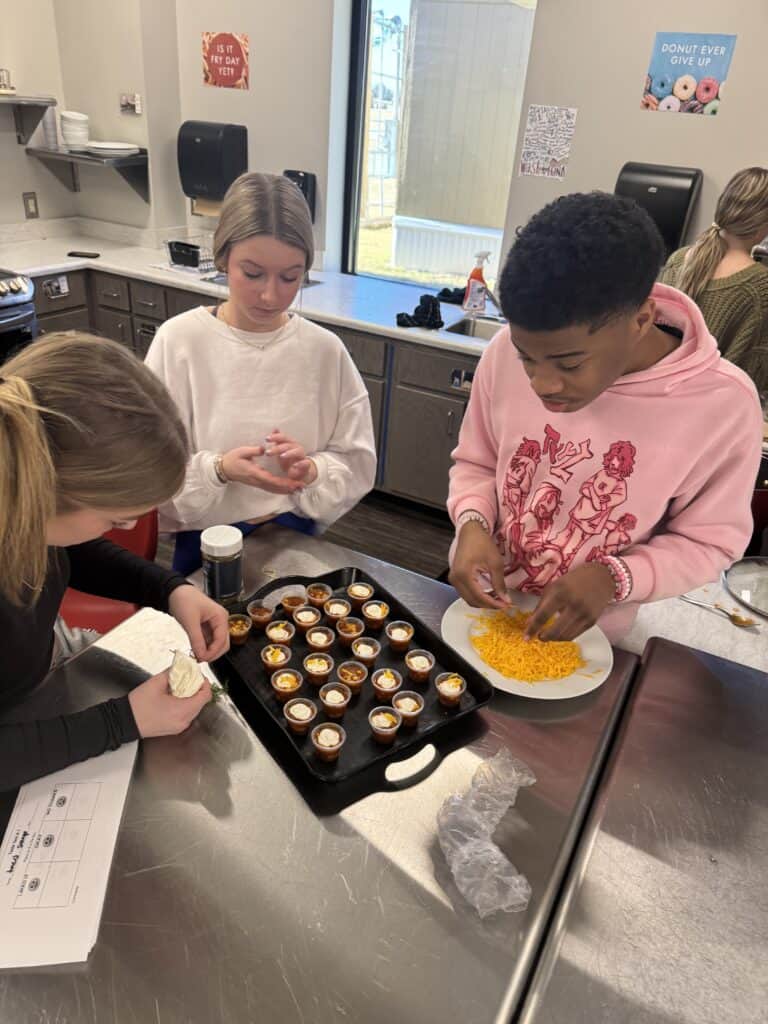
From Kitchen to Cafeteria: Jackson County Students Cook Up Innovation in School Nutrition
When Brooke Curtis's food science students at Jackson County High School step into their classroom kitchen, they're not just learning to cook – they're potentially shaping the future of school nutrition across Georgia. Thanks to a $700 grant from HireSmart Cares, these aspiring culinary innovators get hands-on experience in recipe development, mass food production, and…
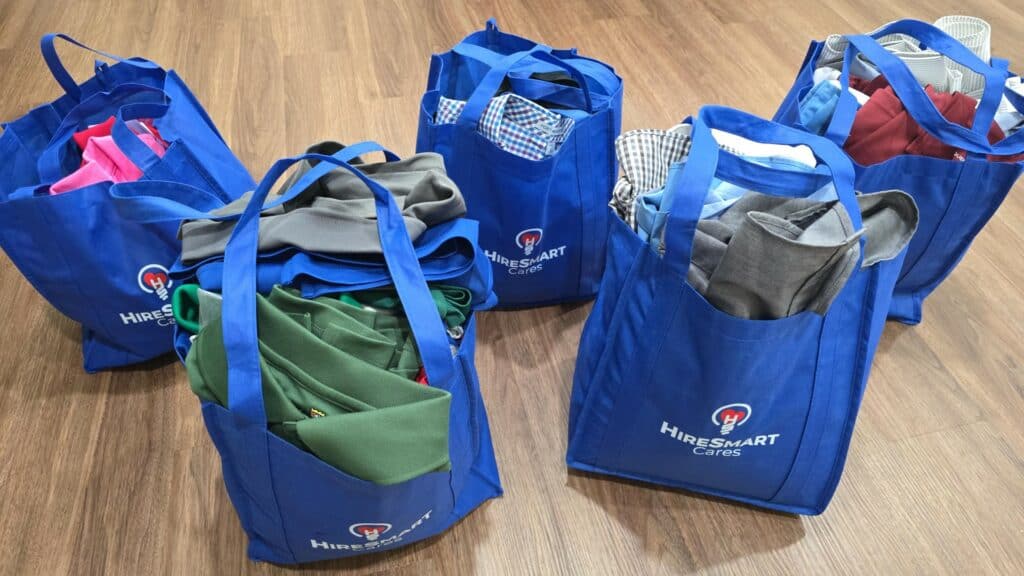
HireSmart helps students dress for career success
HireSmart Cares wants young people to feel pride as they learn career skills while still in high school. That's why the organization aims to help students be "dressed for success." The Madison County-based nonprofit provides scrubs for students in Broad River College and Career Academy's (BRCCA) health science pathway so they can experience the confidence…
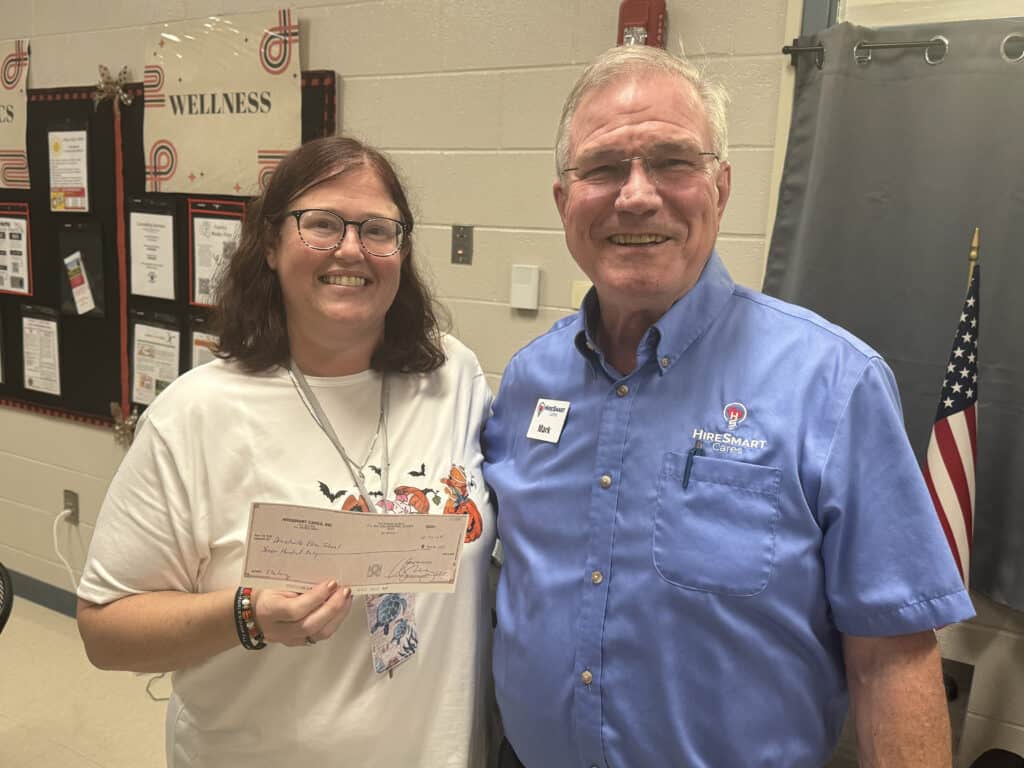
HireSmart Covers Cost of Shelving for Construction Class
Danielsville Elementary School construction teacher Christy Hanson recently received a check for $700 from HireSmart Cares Co-founder Mark Lackey. The grant covered the cost of mobile shelving for the school's construction class materials. "The shelves have come in so handy for us," said Hanson, whose fourth and fifth-grade students learn the construction basics. "I can…
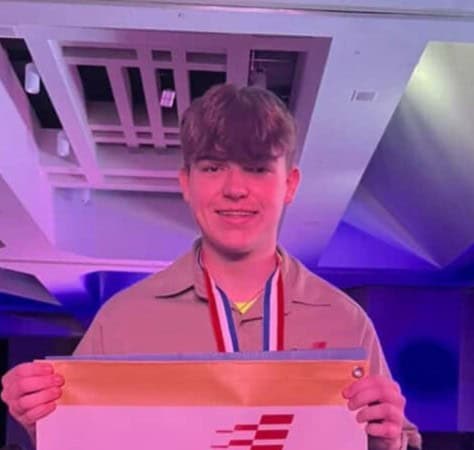
HireSmart Cares U.S. Career Assistance — Peyton’s Story
Even in silence, Madison County's Peyton Sartain keeps a beat as works on electrical wiring. "If the song has a good beat, I like it," he said. "So, in my head, I'm just trying to play a good beat." The music in Sartain's head is a winning tune. The rising Madison County High School…
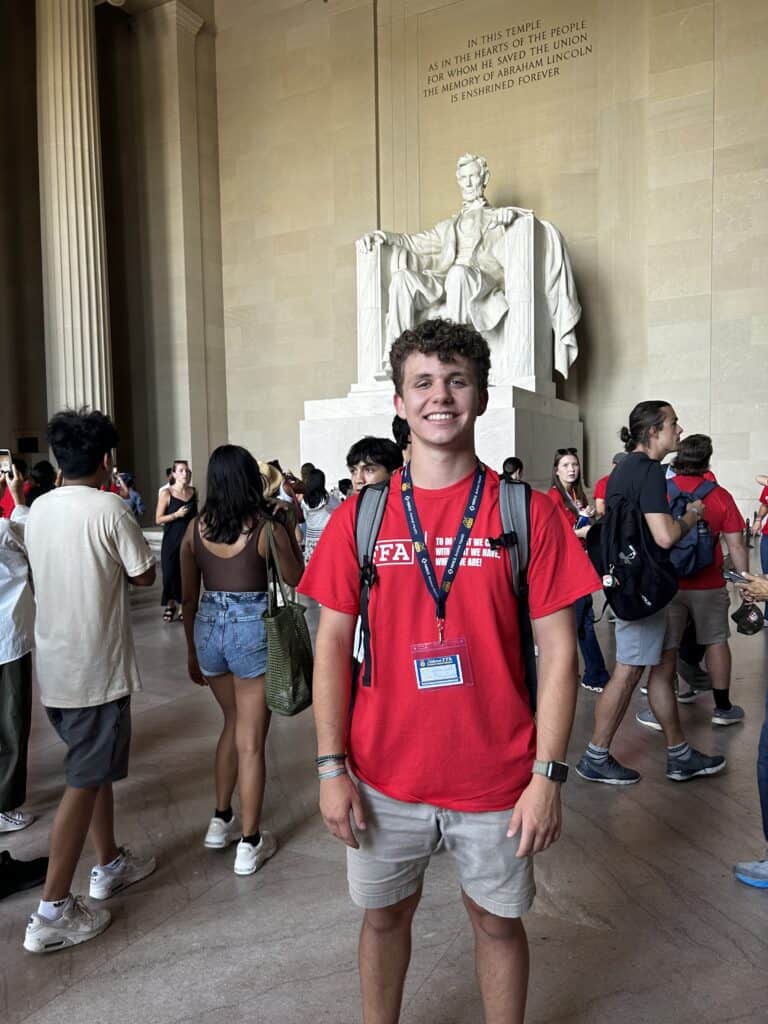
HireSmart Cares U.S. Career Assistance — Devin’s Story
While the monuments of Washington D.C. stand as testaments to past leaders, Devin Self is already laying the groundwork to become a leader in his own right — in the poultry industry. This 2024 Madison County High School grad has his eyes on the prize — a future in poultry science. And he's not wasting…
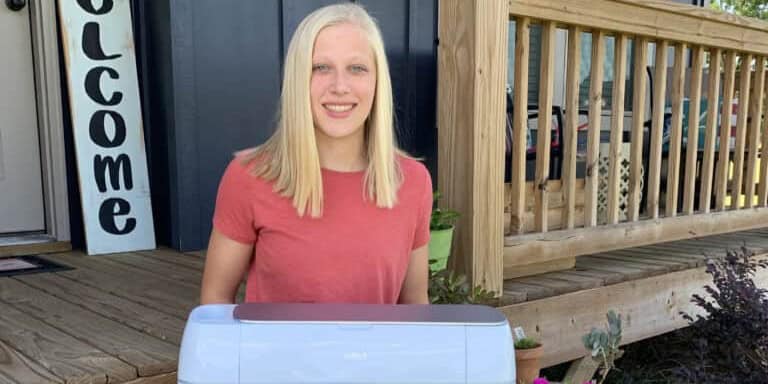
HireSmart Cares U.S. Career Assistance — Westlynn’s Story
Westlynn Epps sees local moms wearing her earrings and their children wearing her T-shirts. "I see my earrings a lot, especially at football games," said the rising junior, who serves on the Madison County athletic training team, putting tape on ankles and wrists during games. Epps' business is called "Works By Westlynn," and the Danielsville…
